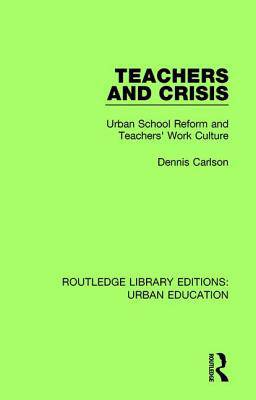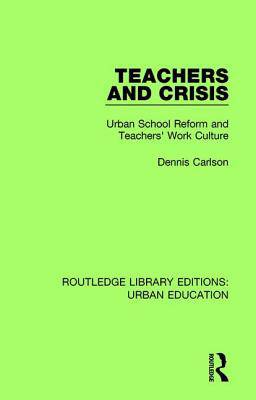
- Afhalen na 1 uur in een winkel met voorraad
- Gratis thuislevering in België vanaf € 30
- Ruim aanbod met 7 miljoen producten
- Afhalen na 1 uur in een winkel met voorraad
- Gratis thuislevering in België vanaf € 30
- Ruim aanbod met 7 miljoen producten
Omschrijving
Advocates of the 'back-to-basics' movement argue that a basic skills programme ensures that students are educated to a minimum level of literacy required to enter the labour force. Critics charge that these efforts only increase school bureaucracy and undermine teachers' autonomy in the classroom.
First published in 1992, this book moves beyond the rhetoric surrounding the basic skills debate by providing a thorough yet critical examination of urban education, urban school reform, and teachers' work culture. Beginning with a sparkling theoretical discussion of the problems and pitfalls of back-to-basics reform efforts, author Dennis Carlson argues persuasively that the movement's exclusive emphasis on functional literacy skills rather than higher-order thinking assures that students will remain on the lower rungs of the socio-economic ladder. He then proceeds with an empirical study of two urban high school districts in which he documents the latent effects of back-to-basics on teachers' work lives as well as staff-administration clashes over efforts to implement restructuring programmes.
This book offers a sensible and sophisticated treatment of some of the important issues facing urban education and will be of great interest to anyone working in Education.
Specificaties
Betrokkenen
- Auteur(s):
- Uitgeverij:
Inhoud
- Aantal bladzijden:
- 302
- Taal:
- Engels
- Reeks:
- Reeksnummer:
- nr. 1
Eigenschappen
- Productcode (EAN):
- 9781138089181
- Verschijningsdatum:
- 7/12/2017
- Uitvoering:
- Hardcover
- Formaat:
- Genaaid
- Afmetingen:
- 140 mm x 216 mm
- Gewicht:
- 503 g

Alleen bij Standaard Boekhandel
Beoordelingen
We publiceren alleen reviews die voldoen aan de voorwaarden voor reviews. Bekijk onze voorwaarden voor reviews.











